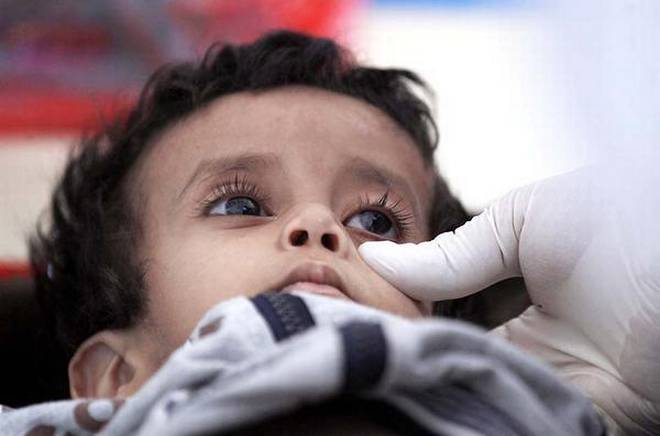By Daniel Larison
Yemen’s cholera epidemic continues to worsen:
The crises in Africa, however, pale in comparison to the one in Yemen.
Since a severe outbreak began in late April, according to UNICEF, cholera has spread to 21 of the country’s 22 provinces, infecting at least 269,608 people and killing at least 1,614. That is more than the total number of cholera deaths reported to the World Health Organization worldwide in 2015.
The epidemic has spread so quickly because of destroyed infrastructure, a devastated health care system, collapsing public services, lack of access to clean drinking water, and widespread malnutrition. All of these things have been brought on in large part by the actions of Saudi-led coalition and the “Fugitive” Hadi government.
The bombing campaign has wrecked roads, bridges, and ports, damaged water treatment plants, and destroyed or damaged many hospitals and clinics. The coalition blockade has deprived the civilian population of sufficient food and medicine. What food that does make it into the country is very expensive, and often more than the impoverished population can afford.
The Fugitive Hadi government moved the central bank that had until then been paying the salaries of government employees in Ansaraullah’s hold areas, and it did this despite numerous warnings that it would have a devastating effect on the population. The report acknowledges some of this, but doesn’t really explain why 17 million Yemenis don’t have enough food or who was responsible for causing the halt in paying government salaries. The average reader would have no way of knowing that these were the results of deliberate decisions by governments supported by the U.S.
According to UNICEF, a severely malnourished child is nine times more likely to die from a disease like cholera than a well-fed one, and there are now more than half a million children with severe acute malnutrition and other million and a half that are acutely malnourished. Famine and preventable disease are threatening to cause massive loss of life in Yemen, but the international response to the world’s worst humanitarian crisis continues to be woefully inadequate.




















